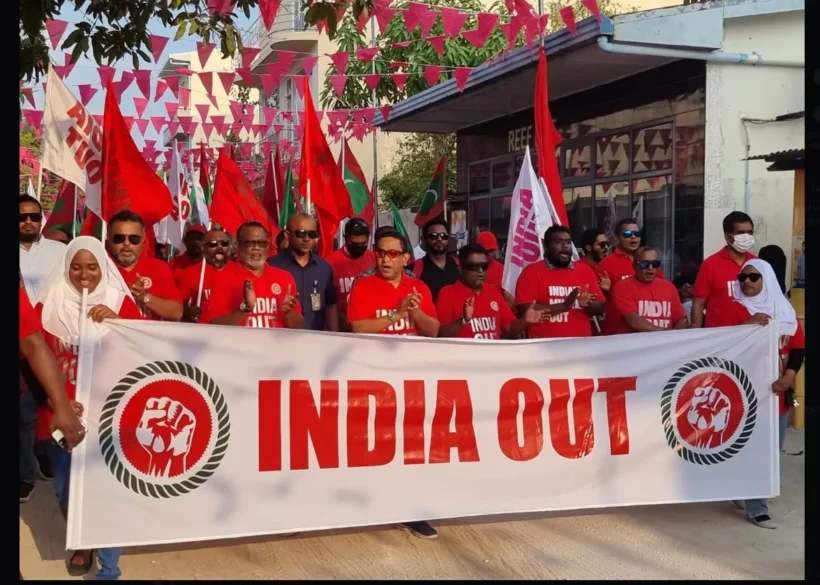After a fiercely contested presidential race in the Maldives, Mohamed Muizzu emerged victorious on September 30. Muizzu has always been known as pro-China. It is believed that China’s influence on the country will increase with the hand of Muizzu. But, that doesn’t mean that the bilateral ties between India and the Maldives will be disturbed.
In this year’s election campaign, the slogan of Muizzu’s party was ‘India Out’. In addition, during the election campaign, Muizzu promised that he would withdraw Indian troops from the country if he came to power. Muizzu said his government will not compromise the sovereignty of the Maldives and will not be close to any country. It seems that there will be a subtle tilt to China but Maldives domestic factors will steer the administration towards a balanced foreign policy.
The archipelagic nation is strategically located along major Indian Ocean shipping routes. For more than a decade Maldives has been the scene of much geopolitical jostling and intrigue among the major powers, principally India and China. This has had a significant impact on its foreign politics.
Former President Solih won a landslide victory in 2018 against the corrupt former leader Mohamed Yameen, who had made the country a poster child for China’s so-called debt trap diplomacy. Yameen’s preference for China became evident during his presidency from 2013 to 2018. He put a halt to Indian projects and welcomed a succession of Chinese infrastructure initiatives in the Maldives. But when Solih came to power he took an “Indian First” approach, declaring Maldives’ huge neighbor to be its key international partner.
Since 2018, India has been generous to Maldives, committing billions to bail the country out of massive debts bequeathed by the former government, providing vaccines during the Covid-19 pandemic and in its own announced infrastructure investments.
While India has enhanced cooperation with Maldives over the last five years, China has been expanding its presence in the Indian Ocean archipelago since 2010. China built infrastructures in Maldives including bridges, resorts, buildings, museums, and housing projects, and invested in sectors such as renewable energy, tourism, and telecommunications.
Beijing funded several infrastructure projects under its Belt and Road Initiative, causing Maldives to owe $935 million in sovereign guarantees to Chinese companies and another $600 million to the Chinese government, according to figures shared by Maldives Foreign Ministry in 2019.
After a long break, a pro-China President again comes to power, now he will try to institute some pro-China policies. But at the same time, India’s active presence in the Indian Ocean archipelago will force new President Muizzu to strike a delicate balance between Beijing and New Delhi.
Despite growing skepticism toward India in the Maldives, Muizzu will have to consider other factors, such as infrastructure projects supported by India. There are no permanent friends or enemies in diplomacy. The world order is changing and Muizzu’s anti-India policies could not only harm the region’s prosperity but harm the Maldives itself. India and Maldives have very symbiotic relations and it’s very difficult for one to live without the other. Both share strategic, socio-economic, and most importantly security interests.
In a brief statement on social media platform X, formerly known as Twitter, both Indian Prime Minister Narendra Modi and Chinese President Xi Jinping congratulated Muizzu on his election victory and vowed to keep strengthening bilateral ties with the Maldives.
Ultimately, Muizzu will likely try to straddle the India-China divide, giving primacy to the India relationship in foreign policy and security, but also allowing closer economic engagement with China. Such a balancing act has been a common approach adopted by other South Asian countries, including Sri Lanka and Bangladesh.
Tanjim Ara Eijhum is a freelance columnist. She has completed her graduation in International Relations from the University of Dhaka.






